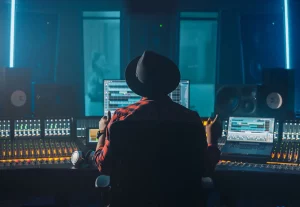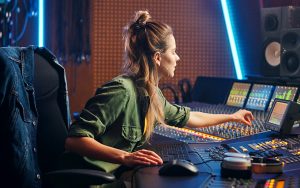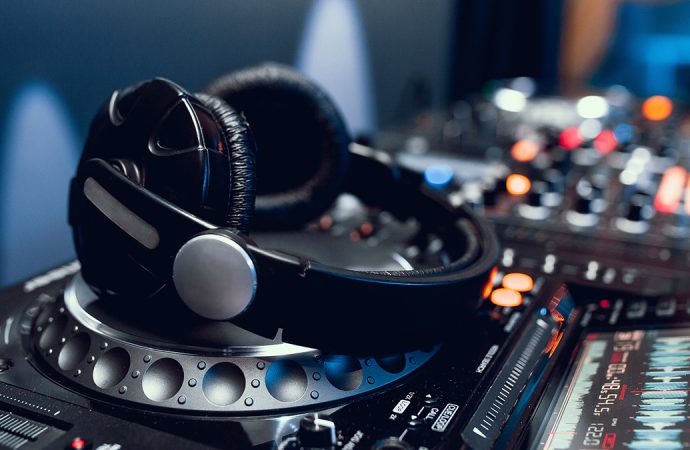Introduction The integration of Artificial Intelligence (AI) into various sectors has been nothing short of revolutionary, and the music production industry is no exception. Over the past few years, AI has made significant strides in transforming how music is created, produced, and consumed. This article delves into the profound impact of AI on music production,
Introduction
The integration of Artificial Intelligence (AI) into various sectors has been nothing short of revolutionary, and the music production industry is no exception. Over the past few years, AI has made significant strides in transforming how music is created, produced, and consumed. This article delves into the profound impact of AI on music production, exploring its benefits, challenges, and future prospects.
The Evolution of Music Production

Image by: Yandex.com
1. Traditional Music Production
Traditionally, music production has been a labor intensive process involving multiple stages such as composition, arrangement, recording, mixing, and mastering. Each of these stages required the expertise of skilled professionals and high-quality equipment. The entire process could take weeks or even months to complete, depending on the complexity of the project.
2. The Advent of Digital Technology
The advent of digital technology in the late 20th century brought about significant changes in music production. Digital Audio Workstations (DAWs) like Pro Tools, Logic Pro, and Ableton Live revolutionized the industry by making it possible to record, edit, and mix music on a computer. This democratized music production, allowing independent artists to produce high-quality music without the need for expensive studio time.
The Role of AI in Music Production

Image by: Yandex.com
1. AI-Powered Composition Tools
One of the most significant impacts of AI on music production is in the realm of composition. AI-powered tools like OpenAI’s Muse Net and Google’s Magenta can generate music in various styles and genres, offering composers new sources of inspiration. These tools analyze vast datasets of existing music to understand patterns and structures, enabling them to create original compositions that can serve as a foundation for further development.
2. Intelligent Mixing and Mastering
Mixing and mastering are critical stages in music production that require a keen ear and technical expertise. AI-powered tools like LANDR and iZotope’s Ozone have made these processes more accessible. These tools use machine learning algorithms to analyze audio tracks and apply appropriate effects and adjustments, ensuring a polished final product. This not only saves time but also reduces the need for specialized skills, making high-quality music production more accessible to independent artists.
3. Enhanced Sound Design
Sound design is another area where AI has made a significant impact. AI-driven synthesizers and plugins can generate unique sounds and textures that were previously unimaginable. Tools like AIVA (Artificial Intelligence Virtual Artist) can create intricate soundscapes and effects, providing producers with a broader palette of sounds to work with.
4. Personalized Music Recommendations
AI has also transformed how music is consumed. Streaming platforms like Spotify and Apple Music use AI algorithms to analyze user preferences and listening habits, offering personalized music recommendations. This has changed the way artists reach their audience, as AI-driven discovery tools can help new and independent artists gain visibility.
Benefits of AI in Music Production

Image by: Yandex.com
1. Increased Efficiency
One of the most apparent benefits of AI in music production is increased efficiency. Tasks that once took hours or days can now be completed in a fraction of the time. This allows producers to focus more on the creative aspects of music production rather than getting bogged down by technical details.
2. Cost-Effectiveness
AI-powered tools have made high-quality music production more affordable. Independent artists no longer need to invest in expensive studio time or hire a team of professionals to produce their music. This democratization of music production has leveled the playing field, allowing more artists to share their work with the world.
3. Enhanced Creativity
AI can serve as a powerful creative tool, offering new sources of inspiration and enabling artists to experiment with different styles and sounds. By automating repetitive tasks, AI allows producers to focus on the creative aspects of music production, leading to more innovative and diverse musical outputs.
4. Better Audience Engagement
AI-driven recommendation systems have changed how audiences discover and engage with music. Personalized playlists and recommendations ensure that listeners are exposed to a broader range of artists and genres, fostering a more diverse and vibrant music ecosystem.
Challenges and Concerns

Image by: Yandex.com
1. Quality Control
While AI has made music production more accessible, there are concerns about the quality of AI-generated music. Some critics argue that AI lacks the emotional depth and nuance that human composers bring to their work. Ensuring that AI-generated music meets high artistic standards remains a challenge.
2. Ethical Considerations
The use of AI in music production raises several ethical questions. Issues such as copyright infringement, the potential loss of jobs for human musicians and producers, and the ownership of AI-generated music need to be addressed. Establishing clear guidelines and regulations will be crucial in navigating these ethical dilemmas.
3. Dependency on Technology
As AI becomes more integrated into music production, there is a risk of over-reliance on technology. This could lead to a homogenization of music, where AI-generated compositions dominate the landscape, potentially stifling human creativity and diversity.
Future Prospects

Image by: Yandex.com
1. Continued Innovation
The impact of AI on music production is still in its early stages, and the future holds exciting possibilities. Advances in machine learning, neural networks, and natural language processing will likely lead to even more sophisticated AI tools capable of creating highly complex and emotionally resonant music.
2. Collaborative Creativity
The future of music production may see a more collaborative relationship between humans and AI. AI can serve as a creative partner, offering new ideas and perspectives that complement human creativity. This symbiotic relationship could lead to groundbreaking musical innovations.
3. New Business Models
AI-driven music production could also lead to new business models in the music industry. For instance, subscription-based services offering AI-generated compositions for various purposes, such as film scores, advertisements, and video games, could become more prevalent.
Conclusion
The impact of AI on music production is profound and multifaceted. From composition and sound design to mixing and mastering, AI has revolutionized various aspects of the music production process. While there are challenges and ethical considerations to address, the benefits of AI in terms of efficiency, cost-effectiveness, and enhanced creativity are undeniable. As technology continues to evolve, the future of music production promises to be an exciting blend of human ingenuity and artificial intelligence.
By understanding and embracing the potential of AI, the music industry can look forward to a future where technology and creativity coexist harmoniously, leading to new and innovative musical expressions.
















